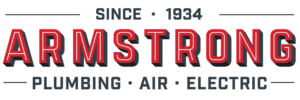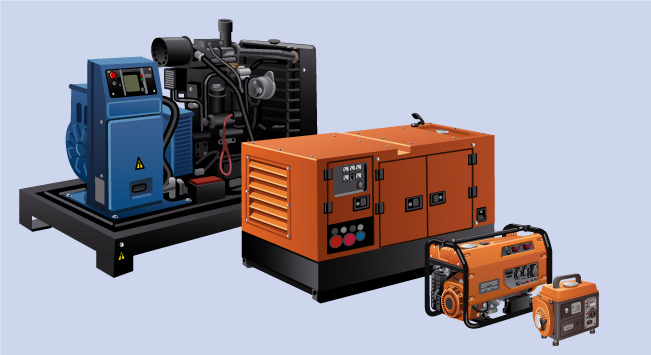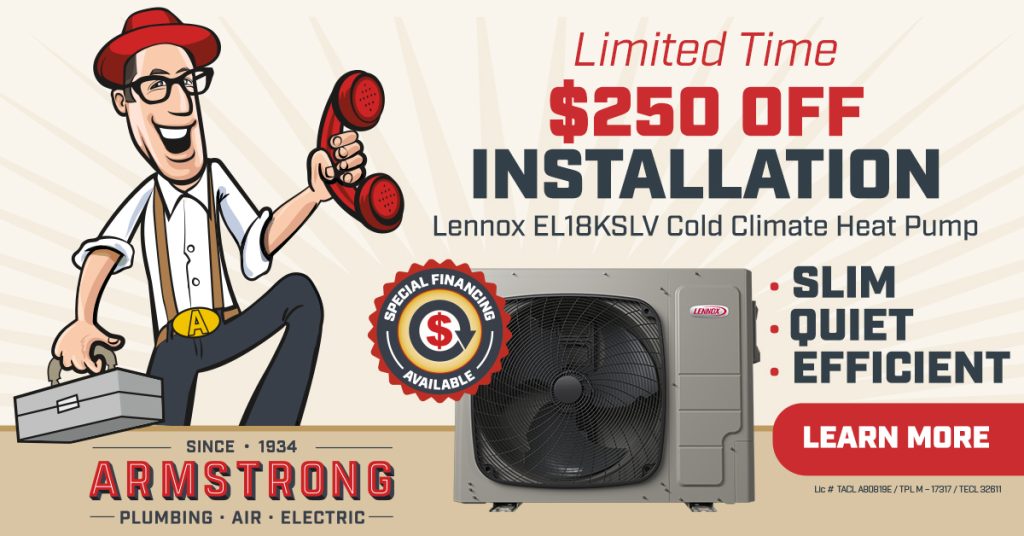In today’s world of modern convenience, there may not be anything that we rely on more than electricity. From powering our devices to keeping our homes comfortable and our families safe, electricity definitely makes the world go round. So, when we lose power, it can be a shock, both from a convenience standpoint and a health and comfort standpoint. Armstrong Plumbing, Heating & Air wants you to know that it doesn’t have to be that way. If a nasty storm knocks out the power or your utility company experiences issues resulting in a loss of electricity, you can still keep the lights on with a backup generator.
GENERATOR FOR HOUSES
There are several options to consider when choosing the right generator for your home. Factors include where you live, what you need to power and how often you may need to power it.
- Occasional Power Outages. If you live in an area with reliable power, underground cables and stable weather patterns (no hurricanes, etc.), then a portable generator may fit your needs. Manually operated, these generators are commonly fueled by diesel or regular gasoline or propane. They can also be wired directly to an electrical circuit with a manual transfer switch, which should be installed by a professional electrician. These generators can generally be broken down into small, medium, large and extra-large.
- Small. 3,000 watts or less, can power lights and a few appliances like the microwave and refrigerator for a few hours.
- Medium. 3,000 to 6,000 watts, can power the essentials for longer due to their bigger fuel tanks.
- Large. 6,000 to 9,000 watts, can power multiple rooms and all appliances that are not hardwired directly into your electrical system.
- Extra-large. Provides more than 10,000 watts and may be turned on with an electronic push-button switch; can meet all your electrical needs for many hours.
- The small and medium generators are also great for their mobility; they can be taken on camping trips or used in other locations. The large and extra-large models are basically semi-permanent and should not be frequently moved. Also, please remember never to operate gas-fueled generators indoors as they produce harmful carbon monoxide fumes.
- Frequent Power Outages. Here in Lubbock, we frequently experience severe weather such as tornadoes and the South Plains also experience hurricane-force winds during the spring and fall storm seasons. With that in mind, investing in an automatic home standby or whole house generator might be the best option for your home. Here is what you need to know about these generators:
- Stationary. Unlike portable units, these generators are meant to be installed in a permanent location by a licensed electrician.
- Automated Feature. These generators also use an automatic transfer switch, which automatically turns on the generator when the utility company’s power goes out.
- Output. These generators can produce up to 150 kilowatts or more of power that can keep all your appliances and sensitive electronics running. Also, they are built to do this for days or even weeks in the event of a prolonged natural disaster or outage.
KOHLER GENERATORS
Armstrong knows that generators – portable and whole-home – are sometimes needed when Mother Nature lashes out. We offer a full line of Kohler options that will meet all residential needs. Call us today to find out more and don’t forget to follow us on social media!








